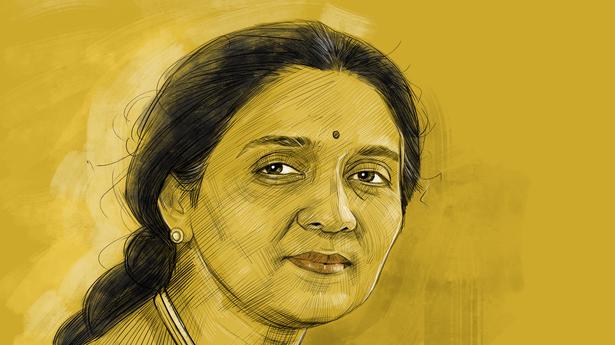
The dramatic fall of an institution builder
The Hindu
The former CEO, a member of the core team that built NSE, is under fire over decisions taken under the ‘guidance’ of an unknown yogi
It was the summer of 1992. It was less than a year since India had embarked on its economic liberalisation when the Harshad Mehta securities scam surfaced in April, revealing the extent to which the Bombay Stock Exchange's regulatory systems had been undermined. A chastened government decided it was time to establish a technology-driven, modern stock exchange that would place transparency at the front and centre of its operations.
To this end, it dusted off a report prepared the previous year by a committee headed by M.J. Pherwani and picked veteran banker S.S. Nadkarni to lead the project. Nadkarni in turn roped in financial industry expert R.H. Patil and set about putting together a core team. With the Pherwani committee stressing the vital need for an active and transparent debt securities market, among its many recommendations, a young chartered accountant working on the bond desk of the Industrial Development Bank of India (IDBI) was among a group of five individuals hand-picked for their expertise in various aspects of the financial markets.
Chitra Ramkrishna, the debt market specialist in her early 30s, would soon prove her mettle as the team tasked with drawing up the framework and operationalising the new exchange hit the ground running. In just nine months from the finalisation of the design for the trading platform, a wholesale debt market was activated on the National Stock Exchange in June 1994 and the NSE would soon go on to rapidly expand its product offerings and trading capabilities.
“Chitra's contribution in those early days was the knowledge and understanding she brought of the debt market, among other aspects,” said a former colleague at the NSE, who spoke on the condition of anonymity.
Two decades later, in April 2013, Ms. Ramkrishna was appointed the managing director and chief executive officer of the NSE, placing her in the rarefied ranks of women CEOs helming a bourse, and this at one of the world’s largest exchanges by trading volume.
Within months of her nomination to the top job, however, she chose Anand Subramanian, a rank outsider to the industry, for a consulting role as her chief strategic adviser with a starting salary of ₹1.68 crore.
“The choice of Anand Subramanian is hard to explain and shows that her problem with trusting people in general resulted in this failure of judgement,” said the former colleague. “While Chitra could be very personable when she wished to, she had poor interpersonal skills and could be rather aloof with her colleagues,” the ex-colleague added.

Air India has signed an agreement with Bengaluru Airport City Limited (BACL), a subsidiary of Bangalore International Airport Limited (BIAL), to develop a built-to-suit facility for the AME program that will feature modern classrooms, well-equipped laboratories for practical training and a team of qualified trainers.










